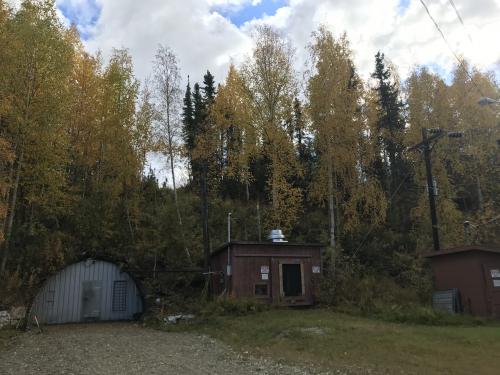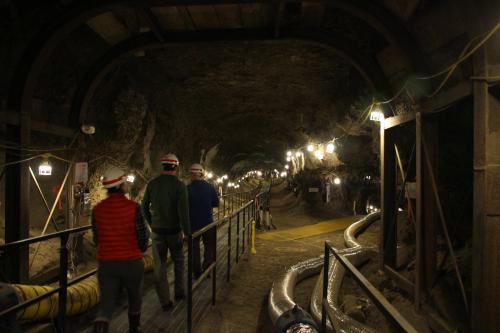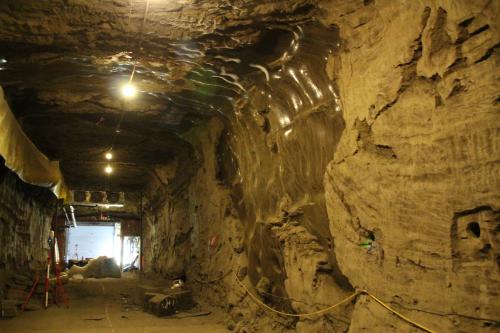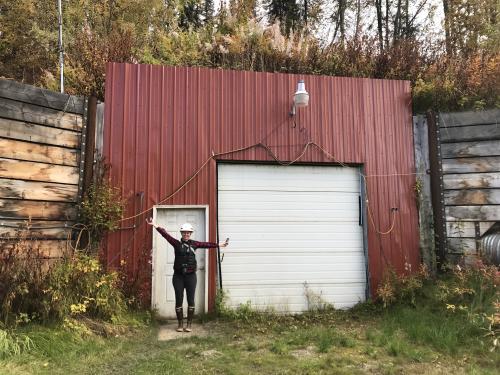My last official day on expedition was spent doing the thing that got me interested in permafrost in the first place – we got to visit the Army Corp of Engineers PermafrostPermanently frozen ground. Tunnel. Tours of the tunnel have only been opened up to the general public once in its 50+ year history.


The tunnel was made with excavators and special drills that can cut through the frozen ground. The walls display many different features – early in the tunnel there are bones from Ice Age bison and mammoths. As you go deeper in, ice wedges, silt, and gravel are visible. 25,000 year old grass is preserved and hanging from the ceiling.





Further Reading
Want to know more? Check out this NPR report on the permafrost tunnel.
360 Tour of the PermafrostPermanently frozen ground. Tunnel
Best viewed on a smartphone through YouTube app.


Comments